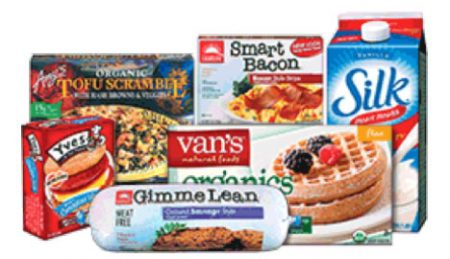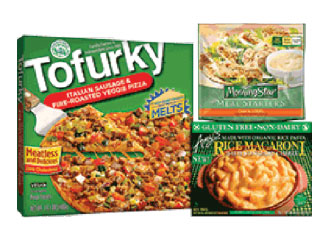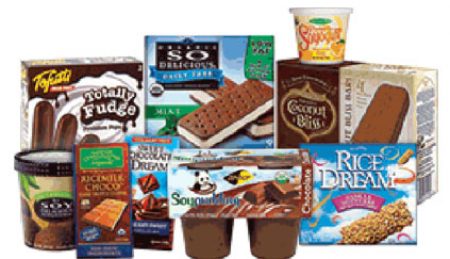So, you think you want to be a vegan, but you still have some concerns? Here are some frequently asked questions and answers.
1) If you don’t eat meat, how do you get enough protein?
Getting enough protein is not actually as hard as people will make you think. What people don’t realize is that protein is in virtually everything we eat! Plus most adults need only about 50g a day but consume considerably more than this.
Great vegan sources of protein include vegetables, tofu, tempeh, seitan, lentils, chickpeas, beans, nuts, and seeds.
Translated into everyday food this could include:
- Spinach or broccoli
- Muesli with banana and soymilk
- Peanut butter on wholegrain toast
- Soy Shake
- Handful of nuts and seeds
- Wrap with hummus, salad, and falafel
- Soy yogurt or muesli bar
- Veggie stir fry with tofu
And remember all the biggest and toughest creatures in the animal kingdom are herbivores!
2) Is a vegan diet healthy?
Yes! In fact, The Academy of Nutrition and Dietetics have stated that a vegan diet is appropriate for us at any stage of our life including pregnancy, infancy, childhood and for athletes. A balanced vegan diet consisting of a wide variety of fresh fruits, vegetables, grains, legumes, nuts, and seeds is the healthiest of all, with the bonus of higher antioxidants and lower saturated fat and cholesterol. A well planned vegan diet can also help with the prevention and treatment of many illnesses and diseases such as; heart disease, obesity, diabetes, osteoporosis, kidney stones and some cancers.
But it is important to note that any diet can be unhealthy.
 3) Can I still eat out at restaurants?
3) Can I still eat out at restaurants?
Of course, you can! Let’s face it, while there are more and more vegan restaurants popping up every day, the number of options out there are still limited. However, now might be the perfect time to look at your favorite restaurants in a different way. Ask if they offer any vegan menu items, you’d be surprised at how many restaurants have at least a few on their menu. (Hint: start with the sides portion of the menu). Also, a quick google search could help you discover new restaurants in your area. Also, check out HappyCow.com, they do a great job of letting you know which restaurants in your area offer vegan options.

4) What can I eat?
Mock meats, made from plant protein, come in a wide range of textures, shapes, and styles: burgers, hot dogs, pepperoni, sausage, bacon, ground meat, meatballs, breaded cutlets, deli slices, “unchicken” salad, and more!
Dairy alternatives, made from soy, rice, nuts, seeds, and plant starches, include milks, cheeses, butter, mayonnaise, sour cream, yogurts, frozen desserts—you name it!
It’s best to sample as many products as you can. You might dislike certain soy milks and veggie burgers, but think others are great!
With the right substitute ingredients and a little experience, you’ll discover you can still enjoy your favorite meals. Vegan twists on most any familiar recipe can be prepared using seitan (or “wheat meat”), homemade “cheezes,” and other meat and dairy alternatives. You’ll find countless vegetarian recipes on the Internet, as well as a huge selection of vegetarian cookbooks.

Breakfast
- Breakfast
- Cold cereal or granola with non-dairy milk
- Oatmeal or other hot cereal
- Bagel with vegan cream cheese
- Toast with jelly
- Pancakes
- Fruit smoothie
- Tofu scramble with veggie sausage
- Fruit-filled toaster pastry

Lunch & Dinner
- Veggie burger or hot dog with fries
- Mock lunchmeat sandwich with chips
- Faux meat with baked or mashed potatoes and gravy
- Vegetable stir-fry with tempeh, tofu, or seitan
- Falafel pita sandwich with hummus or tabouli
- Peanut butter and jelly sandwich
- Soup or chili over pasta or rice
- Baked tempeh or tofu sandwich
- Pasta and tomato sauce
- Bean burrito
- Veggie pizza
- Seitan casserole
- Tofu lasagna

Snacks & Dessert
- Vegan pie, cookies, or cake
- Nondairy ice cream, yogurt, or pudding
- Fresh or dried fruit
- Nuts or seeds
- Trail mix
- Pretzels or popcorn
- Chips and salsa
- Energy bar (such as vegan Clif Bar)
5) Will I need to supplement iron?
You should be able to get enough iron from plants. You just have to make sure you eat a variety of foods, such as dark green leafy vegetables, beans and lentils, seeds, whole grains, nuts and dried fruit. Foods such as breakfast cereals and orange juice are often fortified with iron.
Vitamin C aids the absorption of iron in the body so a vegan diet is at an advantage as it generally contains a variety of fruit and vegetables. If you are concerned about your iron intake then try to avoid drinking tea or red wine with your food. The tannins in them can inhibit the absorption of iron.
6) Will I need to supplement calcium if I don’t eat dairy?
Not necessarily, you can get an adequate amount of calcium from a vegan diet. Good sources of calcium include green leafy vegetables, baked beans, black beans, dried figs, tahini and almonds. As well as this most plant milks are fortified with calcium too. Vitamin D assists the absorption of calcium in the body. Vitamin D supplements are recommended for many non-vegans and vegans alike, especially during the winter months.
7) Do I have to eat tofu?
There are plenty of things to eat without ever touching tofu, and even if you don’t like tofu as is, you may find it useful for mixing into things to provide extra protein or a creamy texture. Tofu can be used to make sauces, as a replacement for ricotta in pastas and pastries, or crumbled up as a ‘mince’ substitute!
8) Is eating vegan more expensive than eating regular foods?
No, Veganism is not expensive. There is a misconception that healthy food costs too much to eat consistently. People think everything you eat has to be organic, or specially grown, or that vegan food can only be bought at high end, overpriced boutique grocery stores, and that is just not true. Vegans survive mainly on beans, rice, pasta, fruits, and vegetables–the cheapest ingredients on earth.
The myth that a vegan lifestyle is too pricey to afford is also perpetuated by expensive specialty vegan restaurants with high priced, processed ingredients, or high quality prepared dishes. But is this really any different from other specialty restaurants?
9) Aren’t humans natural carnivores?
When you see dead animals on the side of the road, are you tempted to stop and snack on them? Does the sight of a dead bird make you salivate? Do you daydream about killing cows with your bare hands and eating them raw? If you answered no to these questions, congratulations—like it or not, you’re an herbivore.
According to biologists and anthropologists who study our anatomy and our evolutionary history, humans are herbivores who are not well suited to eating meat. Humans lack both the physical characteristics of carnivores and the instinct that drives them to kill animals and devour their raw carcasses.
https://www.huffingtonpost.com/kathy-freston/shattering-the-meat-myth_b_214390.html
10) Is Soy bad for you?
http://www.cnn.com/2017/03/07/health/soy-foods-history-cancer-where-do-we-stand-explainer/index.html
11) 5 Myths About Soy You Probably Still Believe.
https://www.huffingtonpost.com/2014/07/15/soy-myths_n_5571272.html
Five Reasons to become VEGAN
- It’s sexy
- You’re in control
- Your health
- Your energy
- Your happiness
Five things becoming a VEGAN guarantees
- You will feel better
- You will sleep better
- You will look better
- You will love better
- You will know better
